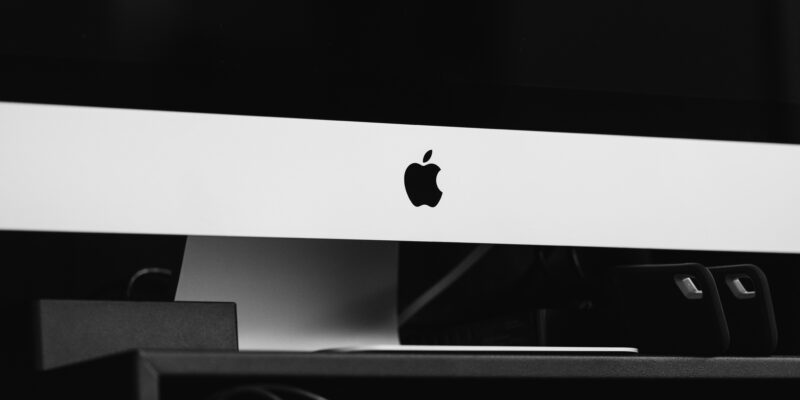In a recent decision by the First Board of Appeal, Gleissner’s Sherlock Systems satisfied the test for abusive practice in its attempted revocation of the mark, KEYNOTE.
Gleissner is infamous within IP circles for his large portfolio of domain names, companies and trade marks, with seemingly little to no goodwill as a foundation. The strategy begins with an offensive action against a trade mark. Upon a defence from the rights owner, multiple actions across the portfolio are initiated, multiplying the burden on the proprietor for response and evidence submission. Previous cases have shown Gleissner to propose a transfer of the initial mark for a relatively small fee. The end goal being a forcible transfer of the mark from the proprietor to Gleissner.
In 2016, Sherlock Systems brought a revocation action against the mark KEYNOTE, registered by Apple in 2003, in Classes 9, 38 and 41 covering terms related to computers, computer hardware, software and services thereof.
The Cancellation Division rejected the action, finding the applicant had relied upon Article 58(1)(a) – revocation of a mark which has not been put to genuine use – for “abusive ends unrelated to the public interest”. The Division applied the test from Kratzer (C-423/15), calculating abusive practice through an overall assessment of the objective and subjective elements at hand.
Following the unfavourable 2017 decision by the Division, the applicant filed an appeal. On grounds regarding an erroneous analysis of section 58(1)(a), 63(1)(a) and 107; the incorrect consideration of the UKIPO decision, Apple (O-015-17); the assessment of evidence; and the test of Kratzer. The appellant added that the public interest was unaffected by their ulterior motive for the mark.
The Board upheld the Cancellation Division’s findings. In doing so, the Board followed the recent Sandra Pabst (R 2445/2017-G) case, which involved Gleissner and a similar fact pattern.
The applicant’s 120 revocation actions against a broad range of marks with genuine use, such as MACINTOSH and BEATMEISTER, signalled a lack of legitimate and acceptable business practice, creating parallel time limits that are unreasonable for the proprietor to adhere to.
The actions across the continent were deemed to be retaliatory to previous actions against Apple’s SHERLOCK marks within the EU and Singapore, also actioned by shell companies with virtual offices set up by Gleissner.
Testing abusive practice via Kratzer is limited to cases where both objective and subjective factors are justified. Objectively, the circumstances of the action point to abuse, despite a formal observance of the rules. The subjective arm must find that the purpose was to obtain an undue advantage, through actions which are found to be artificial in nature.
The simultaneous attack upon the portfolio, via shell companies at national and European level created an objective display of abuse, despite a formal observance of EU rules. Gleissner’s awareness or intended ignorance of the evidence of use supported the artificial nature of the action. Additionally, the wider actions of Gleissner-linked companies within the trade mark eco-system presented an intention to obtain an undue advantage, satisfying the subjective element. An overall assessment confirmed an abuse of process.
Comments
Factual and circumstantial similarities between Sherlock and Sandra Pabst allowed the former to sing from the same judicial hymn sheet as the latter. Sherlock was suspended pending the Sandra Pabst decision for this very reason.
Although the abusive practice of Gleissner has been found at the national and European courts, rights owners and IPOs should not take this as ‘case closed’. Costs awards in the above decisions are minimal and unlikely to cover the resources of external counsel; the likelihood of future actions continues to exist.
Pro-active action against vexatious litigants via Civil Restraint Orders (CROs) should be considered when evaluating the threat of trade mark trolls. Approval by the UK courts will protect abusive proceedings against rights owners. In light of decisions such as Apple, TRUMP TV (O-409-18) and Pepper (R 577/2017-4), a Civil Procedure Order (CPO) initiated under s.42 Senior Courts Act 1981 to restrict parties that litigate ‘habitually and persistently without any reasonable ground’ may well hold merit, at least in the UK.
Decisions on abusive practice coincide with a recent publication by the WTR, confirming the auction of over 900 Latvian trademark registrations owned by Gleissner as a cost recovery mechanism. The implementation of CROs or CPOs could be a pro-active tool to stifle Gleissner’s efforts to acquire trade marks for resale.
_____________________________
To make sure you do not miss out on regular updates from the Kluwer Trademark Blog, please subscribe here.



